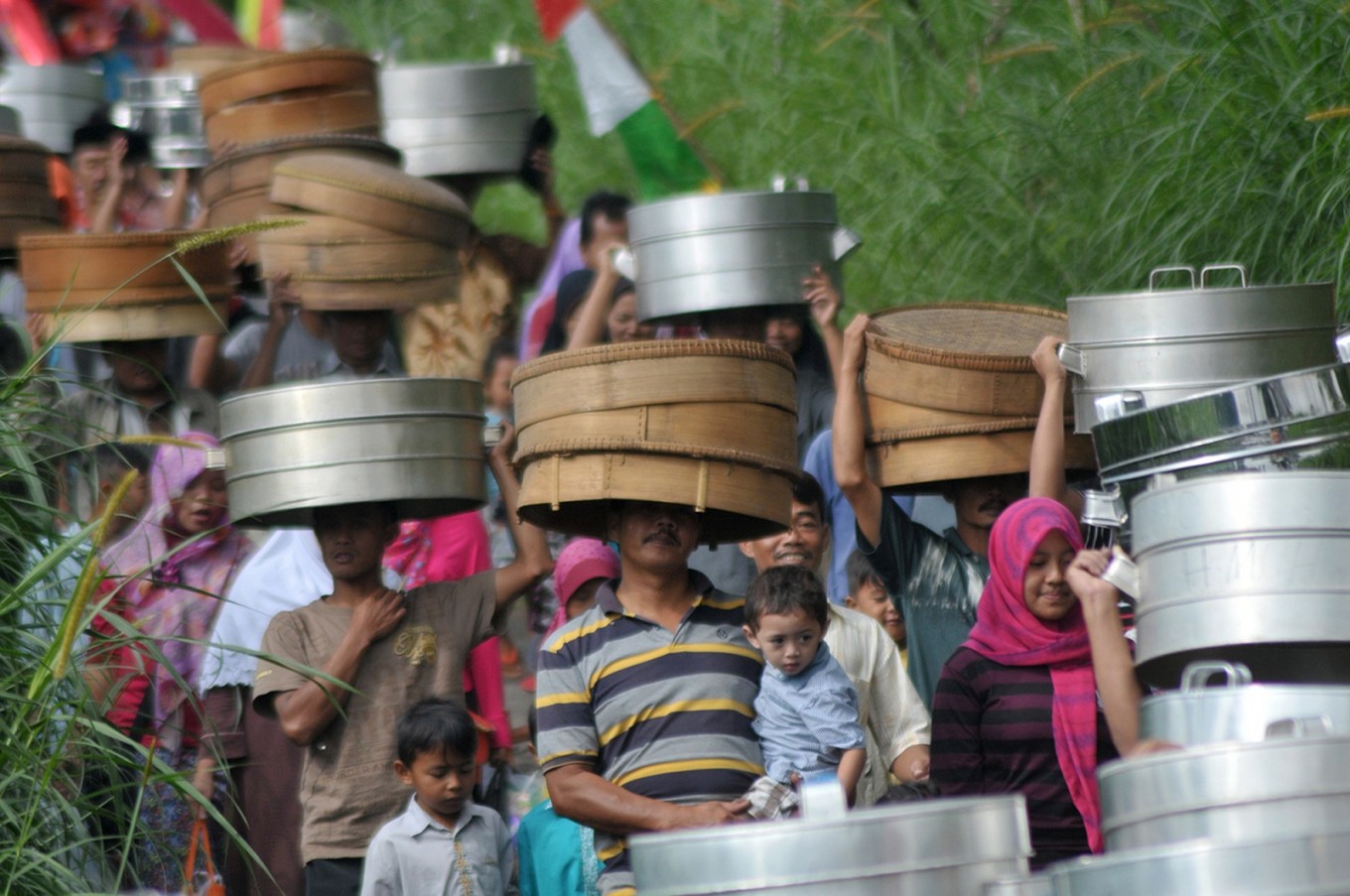Nyadran, a unique tradition of welcoming Ramadhan
Those visiting the village of Selo Duwur in Selo district, Boyolali regency, Central Java, on Sunday were greeted with endless of invitation from the locals to dine at their house.
Change Size
 Locals bring food to the graveyard as part of the nyadran tradition. (JP/Ganug Nugroho Adi)
Locals bring food to the graveyard as part of the nyadran tradition. (JP/Ganug Nugroho Adi)
T
hose visiting the village of Selo Duwur in Selo district, Boyolali regency, Central Java, on Sunday were greeted with endless invitations from the locals to dine at their homes.
Such courtesy, which is part of a tradition known as nyadran or sadranan, will be offered until the day prior to the holy month of Ramadhan.
The food prepared by local residents of the village located on the slopes of Merbabu and Merapi mountains is quite fancy: various beef dishes, opor ayam (chicken stew with coconut gravy), lontong (rice cake), nasi tumpeng (cone-shaped yellow rice), delicacies and fruits.
Aside from Selo Duwur, other villages in the Selo district also celebrate nyadran for a period of one week, such as the villages of Samiran, Lencoh, Senden and Jrakah.
The tradition also includes cleaning graveyards and sending prayers to ancestors during the months of Ruwah in the Javanese calendar.
"The locals usually mudik [exodus] during nyadran; even merrier than during Lebaran," said Sukarman, a respected figure of Selo Duwur village.
"During the one week period of nyadran, every house in the village usually welcomes around 1000 guests," said Samiran village head Marjuki, adding that the home owners would prepare enough food to make sure their guests are well-fed.
According to the tradition, a guest who visited 10 houses will have to eat 10 times since refusing would mean they also refuse future blessings and fortune. Meanwhile, the more people who enjoy their food means more fortune and blessings for the home owners.
During the week, the locals visit their ancestors' tombs and pray for them. The nyadran ritual will then be closed with the exchanging of food between the residents who will eat together around the site.
"Before fasting in Ramadhan, we have to clean ourselves and our family who have passed away so that our worship will run smoothly. This is the true meaning of nyadran," said the graveyard's juru kunci (caretaker), Sumahdi. (kes)









